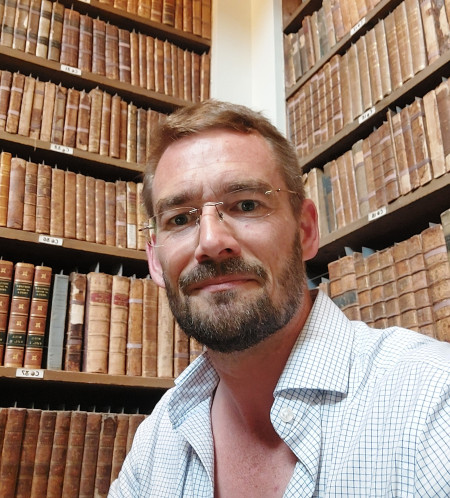
Dr Andrew Griffiths
Staff Tutor And Senior Lecturer
Biography
Professional biography
I have taught for the OU since 2009 and have also taught at the universities of Exeter and Plymouth, specialising in Victorian Literature. A revised version of my doctoral thesis was published by Palgrave Macmillan in 2015 under the title The New Journalism, the New Imperialism and the Fiction of Empire, 1870-1900.
Research interests
My major research focus is on the relationship between literature and journalism in the late nineteenth and early twentieth centuries. My monograph, The New Journalism, the New Imperialism and the Fiction of Empire (Palgrave Macmillan, 2015), explored the ways in which fiction and journalism combined to produce a distinctive discourse of empire in the final quarter of the nineteenth century, paying particular attention to the role of the special correspondent in that process.
My current book project reassesses the work of Britain's war correspondents during the First World War. Previous projects have examined masculinity, madness and empire, as well as the circulation of news within the British Empire before 1900. I have published on writers and journalists including Henry Rider Haggard, Joseph Conrad, G.A. Henty, Rudyard Kipling, George Warrington Steevens, W.T. Stead, Archibald Forbes and Winston Churchill.
Teaching interests
My main teaching interests are in nineteenth-century literature and popular culture, the history and culture of empires and war writing. Recent contributions to OU module materials include editing a block on Literature, Power and Politics for the module A240, and producing teaching materials on George Orwell and Mary Elizabeth Braddon.
I would be delighted to supervise PhD projects on empire and popular culture, literary journalism and writing about conflict.
Projects
Mediating the First World War: Readers and War Reporting
In his 1917 poem “Fight to a Finish”, Siegfried Sassoon fantasises about returning troops charging journalists with fixed bayonets on the streets of London. The image of war correspondents of the First World War as the enemies of the fighting soldiers has become fixed in popular culture and in scholarship. Philip Knightley, author of the most comprehensive history of war correspondence currently in print, accuses the war correspondents of propagating "deliberate lies" and "discrediting their craft". This project re-examines this view of British war correspondents during the conflict by focusing on the responses of readers to reporting on the war. Significant archival deposits covering readers' experiences are readily accessible in London, as well as online. This approach promises to fill a significant gap in existing scholarship on war correspondence.
Publications
Book
Literary Journalism and Africa's Wars: Colonial, Decolonial and Postcolonial Perspectives (2018)
Literary Journalism and World War I: Marginal Voices (2017)
The New Journalism, the New Imperialism and the Fiction of Empire, 1870-1900 (2015)
Book Chapter
25. The Anglo-Zulu War in the Friend of India: Mediation, Meaning and Authority (2024)
Edmund O'Donovan in Asia and Africa: Literary Journalism at the Edge of Empire (2023)
An Anglo-American Encounter in Africa: Henry M. Stanley in Abyssinia, 1868 (2019)
Strategic Fictions? John Buchan, The Times and the Ypres Salient (2017)
Journal Article
British Readers, War Reporting and the Western Front, 1914–18 (2025)
Literary Journalism and Empire: George Warrington Steevens in Africa, 1898–1900 (2017)
Winston Churchill, the Morning Post and the End of the Imperial Romance (2013)